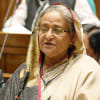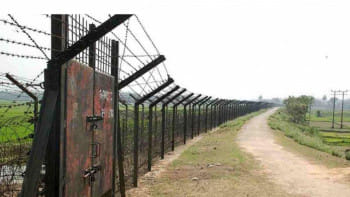Fighting human trafficking
Despite the continuous hue and cry about human trafficking (in the media), very little has actually been done to fight the menace, according to a recently held national seminar, jointly organised by the government and USAID. So it continues to thrive in circumstances created by the absence of proper cooperation among law enforcement agencies, a lethargic pace of investigation and trials of relevant cases, a delay in setting up special tribunals, and an inoperative state of counter trafficking committees at the local levels.
Human trafficking is nothing but a fancy name for modern day slavery where lives are bought and sold with utter disregard for human dignity. It is a complex problem with complex roots. Research shows that a lot of victims originate from areas affected by natural disasters and climate change. In the absence of formal migration services, they become easy targets of human traffickers and smugglers. Reduced scope of formal migration also adds to the problem. And trafficking cases are usually not filed under the proper law which makes the job of prosecutors even harder.
We concur with the experts of the seminar that the capacity of law enforcement agencies and legal practitioners should be enhanced, the national action plan implemented and victims compensated. But without a strong political will of regional governments, none of these steps are likely to make much of a difference in combating a problem that, reportedly, has links to powerful people in many of the concerned countries.

 For all latest news, follow The Daily Star's Google News channel.
For all latest news, follow The Daily Star's Google News channel. 







Comments